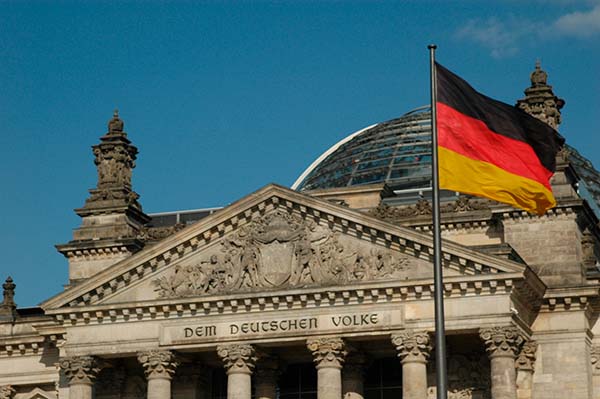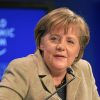The key question before last Sunday’s German elections, the first without Angela Merkel in 16 years, was to know whether they will lead to continuity or change. The question is even more pertinent following the elections and their uncertain result. The topic will generate much debate over the coming days and weeks (see our discussion panel here), but after a first analysis I am inclined to argue that there will be more continuity than change, and that for several reasons.
“[…] after a first analysis I am inclined to argue that there will be more continuity than change, and that for several reasons.”
First, the main candidates. All of them follow Merkel’s trademark middle-of-the-road political moderation. Armin Laschet was elected Merkel’s heir apparent in the CDU precisely because he was a consensus candidate. Olaf Scholzhad been quite radical in the past –to the extent of being anti-capitalist and anti-NATO– but he has run this campaign posing with his hands in the Merkel diamond position (Merkel-Raute). Finally, one of the greatest achievements of Annalena Baerbock has precisely been to bridge the traditional tension between the Green Party’s fundis (idealists) and realos (pragmatists). Thus, they are all mainstream candidates.
The final results have also tended towards the centre. The far-left Die Linke was down 4.3 percentage points compared with 2017 and the far-right Alernative für Deutschland (AfD) dropped 2.3 percentage points. The extremes have therefore become weaker. Nevertheless, there has, of course, been some change. One could argue that Germany has moved from centre-right to centre-left, as pointed out by the Greens’ Sven Giegold. But the move has been so subtle that Armin Laschet even thinks that he is perfectly legitimised (despite losing 9 percentage points and obtaining the worst results in the CDU/CSU’s history) to seek a governing Jamaica coalition.
Here one would have to praise Christian Odendahl, who as far back as August 2020 believed that Scholz had a distinct possibility of gaining the Chancellery –for which he was unfairly mocked– and who on Sunday criticised Laschet for not recognising his defeat and letting Scholz have a first shot at constructing a governing coalition. Even Bild, the influential German tabloid, told Laschet he should wake up from his ‘nothing has changed’ dream and accept the reality that most Germans do not want him as their Chancellor. In any case, the point that Scholz represents continuity rather than change stands firm.
Ana Carbajosa’s Twitter timeline shows that according to an ARD poll as many as 40% of Germans –21 points more than in 2017– want substantial change in Germany (by the way, Carbajosa has just published an excellent book in Spanish about the Merkel legacy). However, it so happens that those most enthusiastic for change are the voters of Die Linke and the AfD, parties that have both lost popular support in these elections, and then the Greens, which gained less than 15% of the vote, far less than they expected, and far distant from the 25% they polled before the Summer. SPD, FDP and especially CDU voters are much less in favour of big transformations. Hence, I am not sure that I share Adam Tooze’s assessment that these elections signify any substantial change.
Where there is a significant change is in the SPD’s performance in East Germany, the former DDR, where it increased its share of the vote from 13.9% to 24.2%, a substantial shift, having thus overtaken the AfD, that fell from 21.9% to 19.1%. Scholz’s campaign, focusing on ‘respect’, certainly made a difference, but the underlying perception that the East continues to be marginalised is still there. It remains to be seen whether a possible Jamaica or Traffic-light coalition can change that. For now, social security rather than climate change is the main concern of Ost-Deutschland voters. Not much has changed in that respect.
On the issue of gender, there will apparently be some change. After 16 years under Merkel there will finally be a male German Chancellor. But will that imply any real change, or simply a return to the clichéd 60-year-old white male from West Germany? The female representation at the Bundestag will stand at 35%, above 2017’s 31% but slightly below 2013’s 36%. Thus, again, no substantial change.
“[…] a three-way coalition will imply making allowances and avoiding any radical move away from a centrist mainstream approach.”
Finally, what about the political programmes? Whether the coalition is Jamaica or traffic-light will certainly make a difference. The former will not raise taxation levels while the latter is likely to do so, especially as regards the richer sections of society. But a three-way coalition will imply making allowances and avoiding any radical move away from a centrist mainstream approach. Most of the voters deserting the CDU/CSU ended up opting for the SPD. Meanwhile, the same can be said about European and foreign policy. With Lindner as kingmaker, Germany will not jump into a fiscal union, while with the Greens as the hinge party neither will it increase defence expenditure. Germany might adopt a tougher tone regarding Russia and China, but it will certainly not seek confrontation. In any case, Europe as an issue was totally absent from the campaign. As Sophie Pornschlegel points out, there has not been much change in this respect either.
As a last thought, given the differences in both programmes and sensitivities between the electoral bases of the Greens and the Liberals, protracted negotiations well into next year should not be ruled out –meaning that Merkel may yet deliver a further New Year’s speech–, or even a final stalemate. The possibility of a Grand Coalition will then come to the fore again. The end result may well be Scholz as Chancellor and Laschet as Finance Minister. That would certainly signify a clear continuation of the Merkel era, not least because perhaps the biggest change on the cards, a three-way coalition, would finally be avoided.



